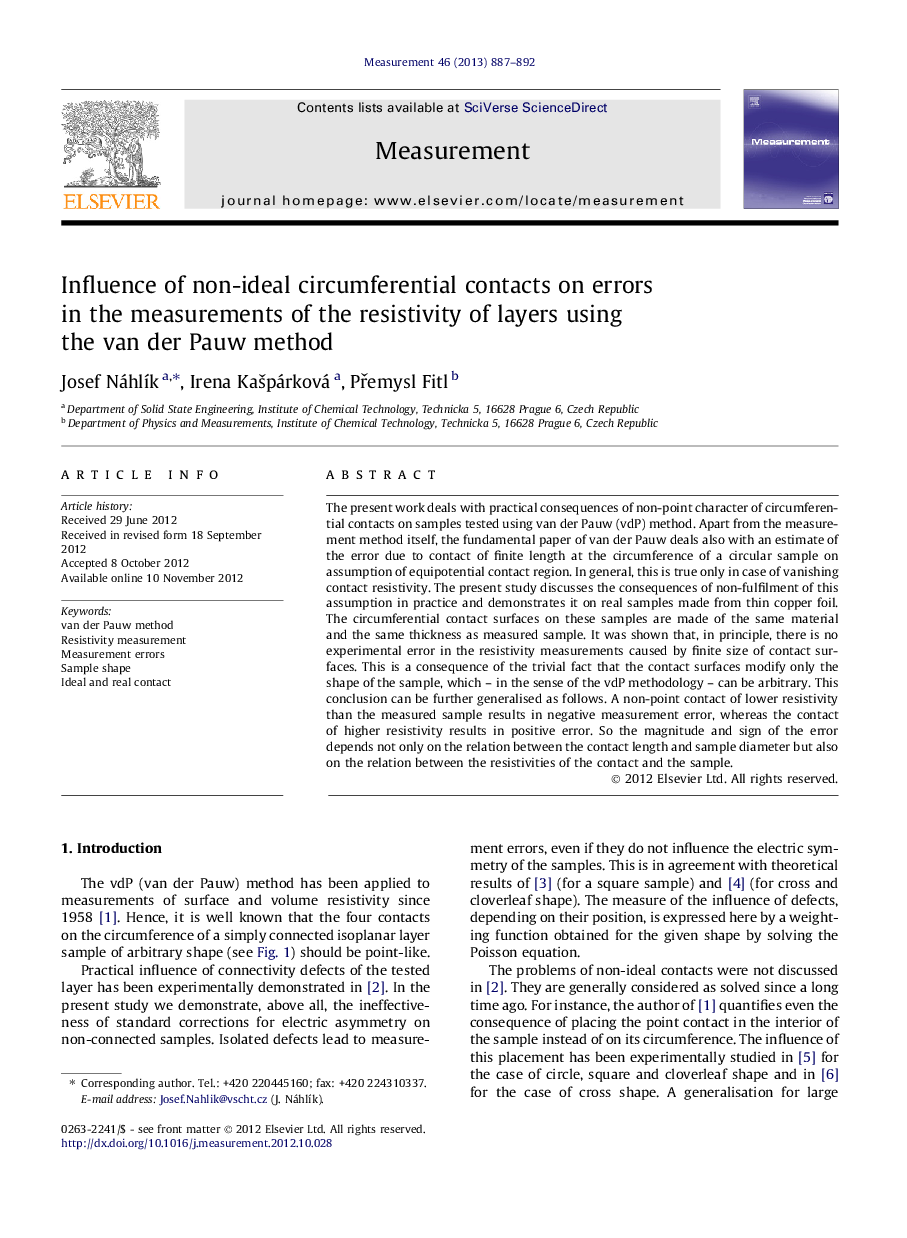| Article ID | Journal | Published Year | Pages | File Type |
|---|---|---|---|---|
| 727487 | Measurement | 2013 | 6 Pages |
The present work deals with practical consequences of non-point character of circumferential contacts on samples tested using van der Pauw (vdP) method. Apart from the measurement method itself, the fundamental paper of van der Pauw deals also with an estimate of the error due to contact of finite length at the circumference of a circular sample on assumption of equipotential contact region. In general, this is true only in case of vanishing contact resistivity. The present study discusses the consequences of non-fulfilment of this assumption in practice and demonstrates it on real samples made from thin copper foil. The circumferential contact surfaces on these samples are made of the same material and the same thickness as measured sample. It was shown that, in principle, there is no experimental error in the resistivity measurements caused by finite size of contact surfaces. This is a consequence of the trivial fact that the contact surfaces modify only the shape of the sample, which – in the sense of the vdP methodology – can be arbitrary. This conclusion can be further generalised as follows. A non-point contact of lower resistivity than the measured sample results in negative measurement error, whereas the contact of higher resistivity results in positive error. So the magnitude and sign of the error depends not only on the relation between the contact length and sample diameter but also on the relation between the resistivities of the contact and the sample.
► VdP theory is extended to unequipotential contact areas of finite size. ► Measurement error depends on the resistivity of the contact material. ► Same material and thickness of contacts and sample do not cause resistivity error. ► If the resistivity of contact surfaces is less as sample, the error is negative. ► If the resistivity of contact surfaces is greater as sample, the error is positive.
